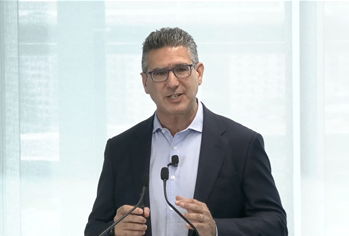The ACCC's recent draft decision on backhaul pricing will see most Australians paying less for broadband, but a pricing discrepancy means some businesses could end up paying more.

The draft determination, handed down by the ACCC late last week, regulates the prices on declared backhaul (transmission) links on routes where a single provider holds a monopoly.
Since its last review in 2012, the ACCC found prices on competitive deregulated routes, where a carrier such as TPG, Nextgen or Optus offers a competing backhaul link, had experienced significant price falls.
In order to mirror this drop, the ACCC worked with Economic Insights to develop a model for pricing declared backhaul fibre links.
The model takes into consideration factors such as capacity, distance, location, interface type (SDH or ethernet over SDH) and economies of scale.
Under the proposed model, prices on declared links will fall by an average of 17.6 percent in metropolitan areas and 23.8 percent on regional routes when compared to the 2012 model.
Tail-end service issues
However, using this model in the ACCC's final ruling on backhaul prices would mean in some cases, businesses could end up paying more for short backhaul links.
The price increases affect “tail-end” services, which are defined as fibre-optic links between an exchange and either an end users’ location or an RSP’s point of presence.
Tail-end services can be used by businesses to connect an office building or data centre to a competitive carrier whose network includes a fibre link to a nearby exchange, but does not run past the building.
The proposed model would also see price increases for low-bandwidth links of less than five kilometres in both regional and metropolitan areas.
The ACCC acknowledged the discrepancy, but highlighted that overall prices would still be lower under the new model.
“[The rise] reflects the commercial prices on which the 2015 benchmarking analysis was based," an ACCC spokesperson said.
"However, the ACCC’s analysis of the market also shows that the demand for higher capacity services has increased considerably, and prices for these services have fallen.”
An Optus spokesperson told iTnews the pricing decision could hurt competition in the corporate market.
“For a substantial component of transmission links, prices have risen. These are the short distance low bandwidth links that corporate customers rely on and for which there is no alternative competitive supply,” the Optus spokesperson said.
“The price ruling will help to cement Telstra’s dominance in the corporate market.”
Pricing models also a concern
Optus also raised concerns that under the proposed model, the terms of commercial arrangements could see existing backhaul links excluded from any price cuts.
It said the pricing model used for Telstra products such as X.162, X.163, MLL and MLL Ethernet backhaul calculate capacity and distance based on bands or on a zonal basis rather than on the linear model used by the ACCC.
“Telstra has largely inoculated itself from the ACCC price ruling by re-defining many of its services so that they do not easily fit within the ACCC price determination,” an Optus spokesperson said.
An ACCC spokesperson said Telstra would have to offer services at the new prices, but noted the model doesn’t supersede prices agreed to under commercial terms.
“The regulated prices apply to all providers of [backhaul] in regulated areas and on regulated routes,” an ACCC spokesperson said.
“Telstra as a major supplier of DTCS transmission services, like other transmission carriers, must make the regulated service available to access seekers at the regulated prices.
“Telstra does this through the data carriage service product. However, where an access seeker and an access provider agree commercial terms that are different to the regulated prices then those commercial terms prevail.”
A Telstra spokesperson said the telco was currently reviewing the ACCC model.
“We make no apology for innovating in the wholesale market to supply services that meet our customers’ needs at competitive prices. It’s important that prices are set at levels that continue to encourage investment in transmission infrastructure,” a Telstra spokesperson said.
Submissions on the draft model are open until October 2015, with a final decision expected to be handed down in November.


_(5).jpg&h=140&w=231&c=1&s=0)

.png&h=140&w=231&c=1&s=0)



.png&w=100&c=1&s=0)

 iTnews Benchmark Security Awards 2025
iTnews Benchmark Security Awards 2025
 Digital Leadership Day Federal
Digital Leadership Day Federal
 Government Cyber Security Showcase Federal
Government Cyber Security Showcase Federal
 Government Innovation Showcase Federal
Government Innovation Showcase Federal
 Digital NSW 2025 Showcase
Digital NSW 2025 Showcase












_(1).jpg&h=140&w=231&c=1&s=0)



